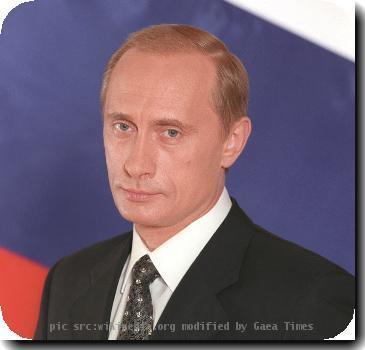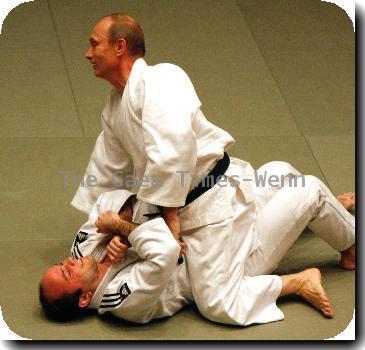Netanyahu says Israel not planning any wars with Iran but renews calls for tough sanctions
By Aron Heller, APTuesday, February 16, 2010
Netanyahu: Israel not planning war with Iran
MOSCOW — Israeli Prime Minister Benjamin Netanyahu said Tuesday his country is not planning a war with Iran and that Tehran’s concerns over such a conflict are the result of the threat of additional international sanctions.
Iranian President Mahmoud Ahmadinejad said Tuesday he believes Israel or its allies are considering a military strike against his country, which has thus far failed to prove that its nuclear program is peaceful.
“We are not planning any wars,” Netanyahu said, speaking in Moscow after meetings urging Russian officials to approve tougher sanctions against Iran.
In Tehran, Ahmadinejad said Israel is “seeking to start a war next spring or summer, although their decision is not final yet,” without saying where he got that information.
Netanyahu dismissed that talk as “manipulations.”
“I wouldn’t be surprised if the things we are hearing are a result of Iran’s feeling there is an increase in talks about sanctions,” he said.
Israel has been at the forefront of calling for crippling sanctions against Iran because of its nuclear program.
Israel, like the U.S. and much of the international community, believes Iran’s program is aimed at developing a nuclear bomb, which Iran denies. While Israel says it hopes diplomacy will resolve the nuclear standoff, it has not ruled out military action and Iran has frequently mentioned it could suffer a military strike from Israel or its allies.
Speaking to reporters after meeting with Russian Prime Minister Vladimir Putin, Netanyahu denied this, saying the international community was getting closer in agreement over slapping tough sanctions on Iran, which was making the Islamic regime nervous.
Iran already has defied three sets of U.N. sanctions. While Russia has generally resisted new sanctions, it has shown increasing frustration over the past week as Iran proceeds with uranium enrichment despite growing international pressure.
China, which relies on Iran for energy supplies, is the only other major power resisting further sanctions.
Netanyahu said the international community has “all the resources necessary” to deal with the Iranian threat and that during his two-day visit in Moscow he was encouraged by the convergence in the international community for the need to stifle Iran.
“Russia understands very well the problem posed by a nuclear Iran,” Netanyahu said after his two-hour meeting with Putin. “The most important thing now is that there is a general interest … that Iran not become a nuclear power.”
Israel considers Iran to be its greatest threat, citing Tehran’s support for Arab militants, Ahmadinejad’s threats to destroy Israel, and Iran’s nuclear program.
Last week, Iran announced its decision to enrich uranium to higher levels, sparking warnings from President Barack Obama of punishing sanctions against the Islamic regime.
In 1981, Israeli warplanes destroyed an Iraqi nuclear reactor, and what is believed to be an Israeli air attack in 2007 destroyed what the U.S. says was a nearly finished nuclear reactor in Syria that would have been able to produce plutonium.
Israel is believed to possess nuclear arms but refuses to confirm or deny its status. Again this year, its rivals have demanded that Israel open up its facilities to inspection by the International Atomic Energy Agency.
Tags: Barack Obama, Eastern Europe, Energy, Europe, Foreign Policy, Geography, Iran, Israel, Middle East, Moscow, North America, Russia, Tehran, United States, Utilities, Vladimir Putin



